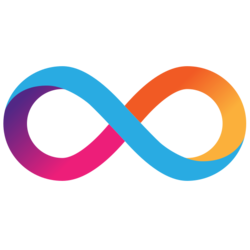ICP Announces Strategic Roadmap: Pioneering Decentralized AI and Enhancing Chain Interoperability with Internet Computer Protocol
ICP/USDT
$75,230,864.33
$2.54 / $2.41
Change: $0.1300 (5.39%)
-0.0317%
Shorts pay
Contents
“`Bitcoin
- Decentralized blockchain network Internet Computer Protocol (ICP) has released a new roadmap for driving decentralized artificial intelligence (DeAI) and chain fusion in the web3 space.
- According to an official statement sent to CryptoPotato, ICP is unveiling the Year 4 Internet Computer Roadmap to celebrate the third anniversary of its mainnet launch.
- “The Internet Computer is the first and only Third-Generation public blockchain. The mission is to drive a ‘blockchain singularity,’ where, over time, fully decentralized blockchains become the world’s prevailing tech stack, even running secure and unstoppable AI,” said Dominic Williams, chief scientist and founder of Dfinity Foundation.
Explore the transformative potential of ICP’s new roadmap in the blockchain industry, focusing on decentralized AI and chain fusion technologies.
ICP Releases New Roadmap
The new roadmap summarizes three years of progress on ICP’s mainnet and outlines major development areas to position the network as the home of DeAI and the orchestration layer for the blockchain industry. Although the new roadmap outlines several focal areas, the biggest highlights are DeAI and chain fusion.
Advancements in Decentralized AI
The DeAI roadmap describes a path where AI models would be trained to run on-chain, moving them beyond black boxes that offer users no visibility on how their data is being used. ICP’s AI smart contracts would be designed to optimize inference engines, boosting AI consistency, reliability, and responses.
Dealing With Liquidity Fragmentation
Furthermore, ICP’s chain fusion roadmap aims to facilitate direct interoperability with major blockchains like Bitcoin, Ethereum, Solana, and Ethereum Virtual Machines without intermediaries. The chain fusion would solve the fragmentation of liquidity and tackle tribalism in the blockchain space, with ICP’s smart contracts enabling developers to create contracts spanning multiple chains by reading from and writing to them.
Conclusion
ICP’s innovative roadmap not only promises to enhance blockchain interoperability but also pioneers the integration of AI technologies in decentralized networks, potentially transforming the landscape of blockchain applications and their usability in real-world scenarios.
“`
Comments
Other Articles
Bitcoin Price Analysis: Will the Uptrend Continue?
2/8/2026
Ethereum 2.0 Update: How Will It Affect the Crypto Market?
2/7/2026
The Coming of Altcoin Season: Which Coins Will Stand Out?
2/6/2026
DeFi Protocols and Yield Farming Strategies
2/5/2026
